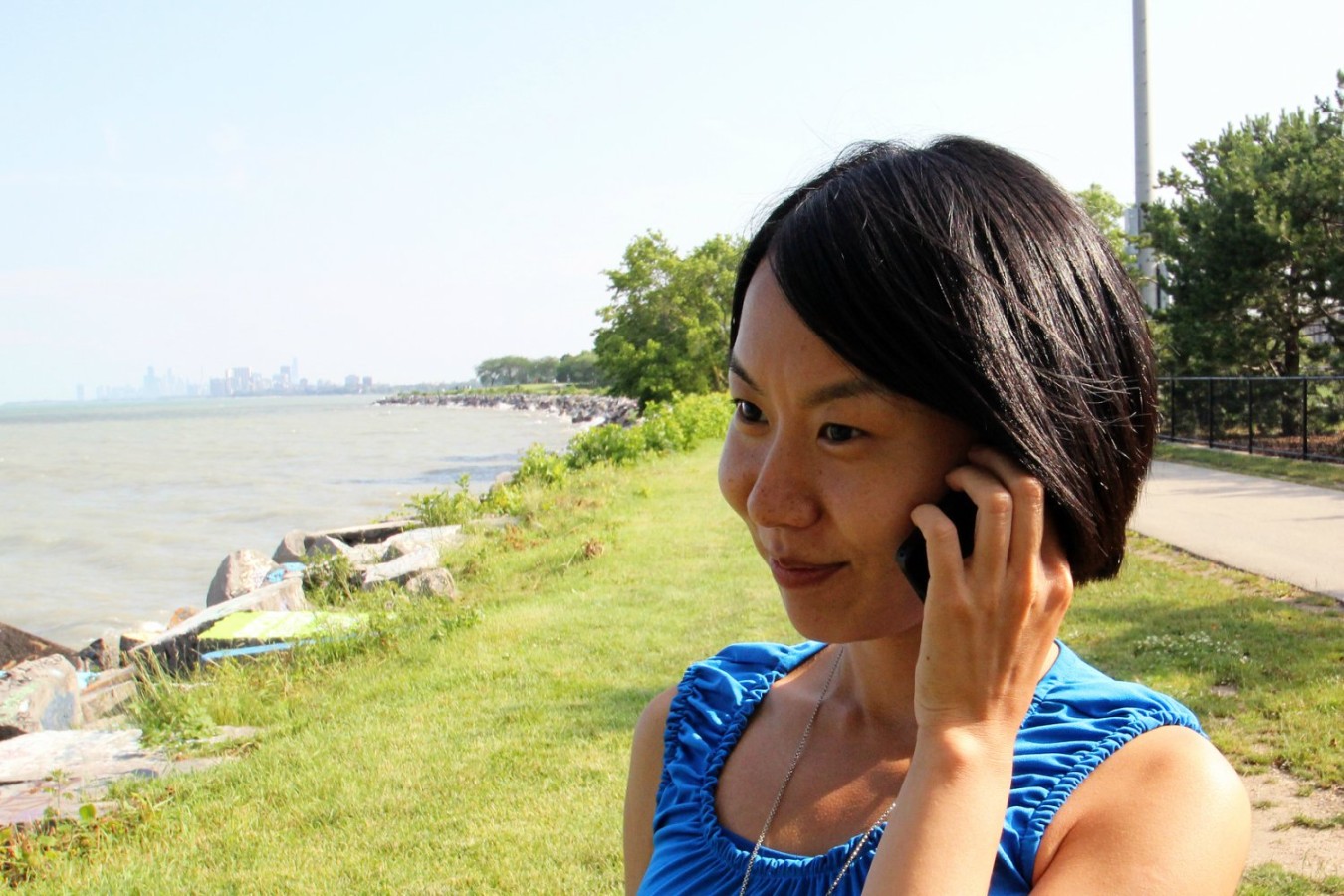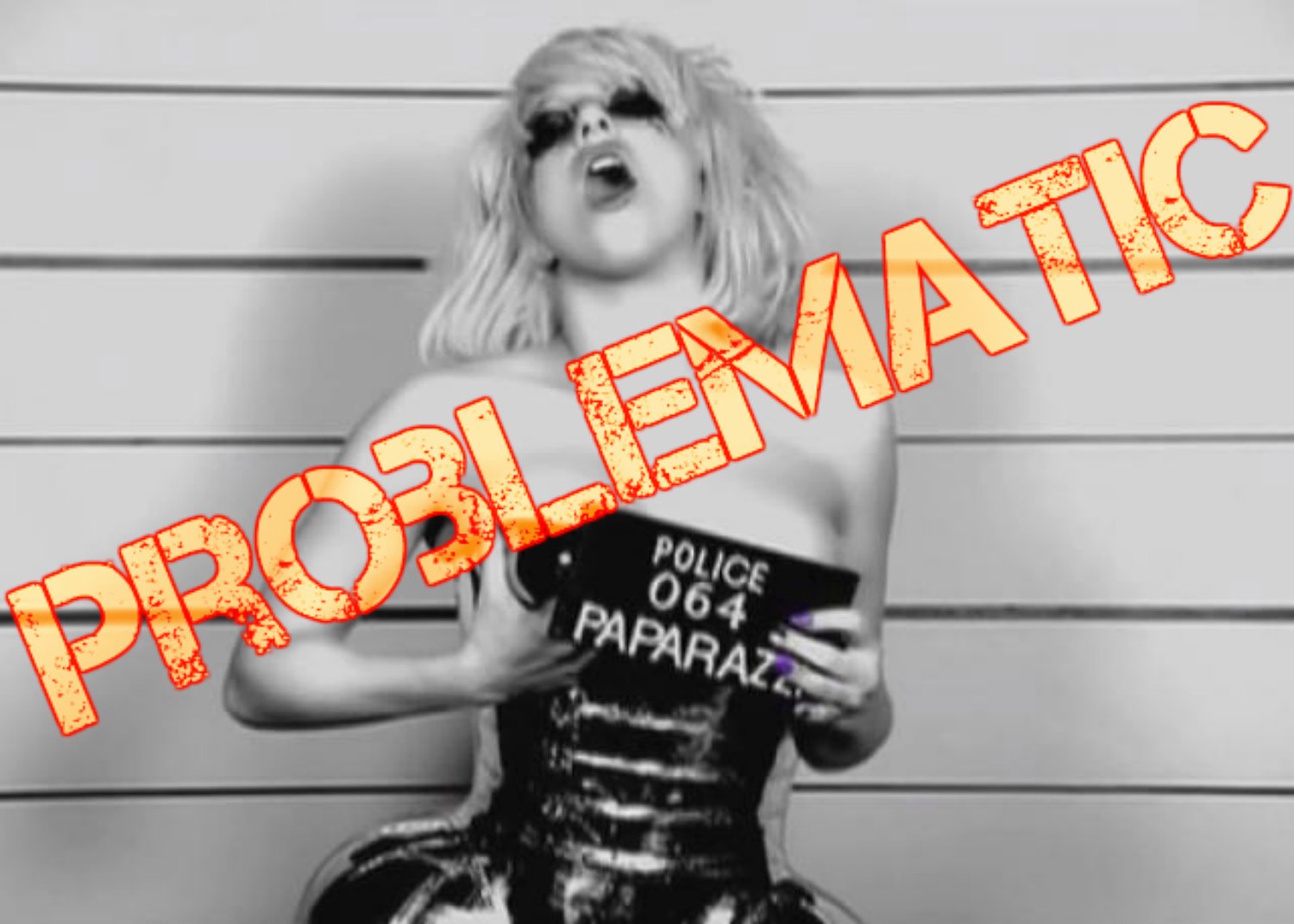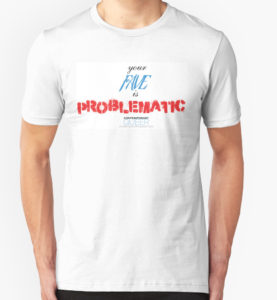“Your fave is problematic!”
You know you’ve heard that said at some point in time. But what does problematic mean?
Problematic media is the term for media that clashes with the values and attitudes that you hold–something like a guilty pleasure but on the ideological level. Problematic media is subjective so it varies from person to person and group to group–in fact, members of a group might not even agree that the same media is problematic.
An example might see an environmental activist Ian watching a television show that has an anti-recycling messages. The activist would never throw a glass bottle in the container intended for paper products, but they do it so frequently on the show. And with glee!
So should Ian stop watching the show? Some say yes, but I say no. Ian isn’t going to suddenly stop recycling and rallying on behalf of trees just because they do it in a show. But he doesn’t have to like that aspect of the show.
It’s OK to enjoy problematic media. They are, after all, guilty pleasures. But you can indulge yourself without being mindless. By keeping true to yourself and empowering yourself to call out the aspects you disagree with, you can successfully engage with problematic media and emerge victorious. Here’s how.
Understand Boundaries
Keep yourself grounded by reminding yourself who you are and what you’re about. If you are a Christian but you LOVE House of Cards where the Kevin Spacey’s character constantly berates Jesus and talks trash about religious people, remember that you are not Kevin Spacey and you don’t live in the House of Cards universe. While media engages people by getting them to identify with characters and situations, you have to be grown enough to draw your line in the sand and just be like “lol that aint me.”
A great way to do this is reminding yourself what you value and that what you’re watching is a program that, while it can attempt to persuade you, does not make the decisions in your life.
Take me for example–I love pop music. But I am not a fan of the n-word or the b-word. So tell me why some of my favorite songs are Niggas in Paris and Bitch Better Have My Money.
I could be at a party and if either of those songs come on you’ll only see the trail behind me as I get to the dance floor. You will see me dance to the words as the music bump-bump-bumps. Does this mean I’m now gonna take to calling everyone I see the n-word or that all women (friends or enemies) are now b-words? Absolutely not.
Knowing boundaries means remembering who you are and maintaining that no matter what is going on outside. And while you may love your media, you are not music or television.
Actively Remind Yourself that you can be Critical
Listen closely because this is important: Critiquing a thing does not diminish your love for the thing. I’ll say it again for the folks in the back:
Critiquing a thing does not diminish your love for the thing.
~Ancient Proverb
A critique is an understanding that you are taking something apart and separating it’s elements and evaluating what is good and what can cause harm (if that’s the kind of analysis you’re making). We do it in art, media–heck, we even do it with people!
You love Auntie Ya Ya but she can’t give good advice for crap! And that’s OK. Eat her specialty mashed potatoes at family reunions, laugh at her stories about what times were like in her heyday, let her pray for you (even if its not your thing but you’re OK with it) when you have a big exam that day. But when she tries to tell you what you should do, remember the last few times you listened to her and make an excuse to hightail it out of there! (Also, pro-tip: Maybe don’t tell her to her face that she gives bad advice. You’re welcome.)

When it comes to media pieces (individual television shows, songs, video games, etc) , figure out how to dissect it and understand it an decide if you want to continue to partake.
Remember Nicki Minaj and the time she used Nazi imagery in her video? Even her biggest fans found it difficult to get down with it. That doesn’t mean they immediately began hating her. They called her out on her mess up and continued.
A quick rundown I do is something like this:
What
What is the piece and what is it about? From the jump, do you rock with what it’s about or do you have some hesitations? What are they and why?
Audience
Who is the intended audience? Based on the way it’s presented, can you figure out who the maker of the piece had in mind when they were creating it? What language is used?
Benefits
What do you gain by consuming this piece? Does it make you laugh or smile when you’re having a rough day? Are there good life lessons to be learned? Does it validate you with a kudos?
Negatives
How do you feel after you finish consuming? Do you feel dirty? Is that level of dirt worth re-consuming? Is this something you’d recommend to your squad/associates/family?
What: Both were silly sitcoms that centered around two women living together in New York City where one was responsible (relatively) and the other was fiercely independent and intense. They get into crazy situations. In 23, the plot revolves around a Millennial who had a promising future trying to make it in the real world (and the shit of her crazy roommate). In Broke Girls, it’s about an heiress that lost everything trying to build a company with a perpetually poor city girl.
Audience: I see both audiences as being white Millennial girls from maybe 16 to 30, give or take. The humor and scenarios seem to be those that would resonate with them.
Benefits: The benefits of watching the 23 is that I get a laugh every time. The one liners and situations are hilarious. It also speaks to me as someone who left college expecting the world and having to start small–like most Millennials. Broke Girls also has laughs, but it really speaks to me as someone who enjoys entrepreneurship. It lays out lessons on how to save, make, and deal with money in a way that’s anything but boring.
Negatives: The negatives of both are that a lot of their jokes fall flat because I’m just not hip with ironic/casual racism and sexism. Some of the tones of the humor are cringeworthy and fall flat–the mockery of other cultures falls on the doing it for the sake of doing it side. Also I’m not keen on their representations of “real NYC” as being uber-not diverse and taking on a Let’s Gentrify aesthetic. But to each their own.
So both of them are problematic to me (in ways that may not be to you–or at all) and I acknowledge that. And if I decide to continue either series, it will be because I decide the benefits outweigh the negatives. While I haven’t gotten past half of season two of Broke Girls four seasons, I admit I’m lowkey upset that 23 was cancelled.
Don’t be Shamed for Liking what you Like
The mouth is yours so you can say what you want. The ears are yours and you can listen to what you want. The preferences are yours and you can prefer them all you want.
So often we fall into the trap of curtailing our tastes and preferences to match those of other groups and people. As I said earlier, if you keep your values close to your heart and know that it’s perfectly fine to critique and evaluate the media you intake, engaging with problematic media is no big deal.
Someone who doesn’t agree with my point can argue that by watching it or recommending it, we give power to those who create and perpetuate the problematic aspects. That’s a valid argument. This is why it is important to analyze and evaluate the things we take into minds and share with others while simultaneously taking the action to call it out. For example: “Last episode of The Real Housewives of Atlanta was hilarious, but the way they portrayed the situation around so-and-so was NOT OK in the slightest.” Share your thoughts. Talk to others about it. Write a piece discussing what was wrong. Connect with others who share that opinion and, if you want to take it a step up, campaign to raise awareness of why so-and-so is a problem in media.
Someone can also argue that consuming any problematic media is problematic in and of itself because you perpetuate problematic forms of problematic thoughts and problematic behaviors in this, our problematic world. I think that’s a little extreme, but if it suits you and doesn’t hurt anyone else, do you boo. It’s extreme because we live in a media-saturated world and to disengage (barring a boycott), while it is certainly a noble choice on the part of the person, takes an immense amount of energy that not everyone possesses or has time to employ. You can choose not to watch something (as I discussed above, I no longer watch 2 Broke Girls despite having stopped mid-season), but I promise if you take that route with every piece of problematic media, you’ll have no media.
Stated simply: Your fave is problematic, and that’s OK.
If you want to share how OK you are with your problematic fave, get this awesome shirt and support the blog! It’s the perfect gift! 🙂


